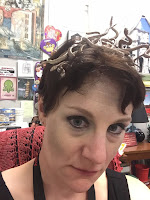
Bolchazy-Carducci’s tradition of listening to teachers, enlisting their input, and learning of their needs has regularly led us to develop new materials. Teachers’ desire for a Latin series that fused the traditional grammar approach with the reading method led our late founder Ladislaus J. Bolchazy, PhD, to commission renowned Latin language educators and living Latin enthusiasts Milena Minkova and Terence Tunberg to author Latin for the New Millennium.
Again, heeding LNM users, we are developing a second edition of LNM 1 and 2 coming spring 2017. Teachers and students who have come to love LNM's literary-rich vocabulary, supplementary cultural information, and substantial core of conventional exercises, will appreciate the second edition and its new features. Key new features include an enhanced focus on derivatives and additional exercises that provide reinforcement and laddering activities. We’ve also added Latin readings from the female polymaths Hildegard von Bingen and Anna Maria van Schurman to the LNM 2 workbook.
Visit our website for more details. For specifics on LNM Second Edition, click here, and scroll to the bottom for a chapter by chapter list of changes.




